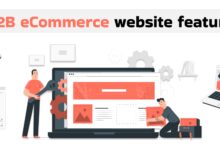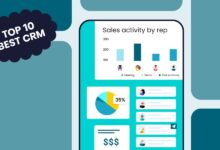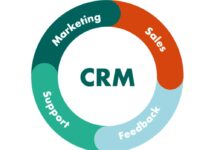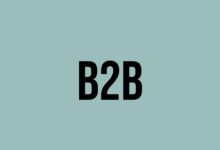CRM Software for Small Business: 7 Powerful Tools to Skyrocket Growth
Running a small business means wearing many hats — from sales to customer service. But what if you could simplify it all? CRM software for small business is the game-changer you’ve been waiting for.
Why CRM Software for Small Business is a Must-Have

In today’s fast-paced digital world, managing customer relationships manually is not only inefficient — it’s a recipe for missed opportunities. CRM software for small business helps you organize, track, and nurture customer interactions in one centralized platform. Whether you’re a solopreneur or managing a team of ten, a CRM system can dramatically improve your workflow, boost sales, and enhance customer satisfaction.
Streamline Communication Across Teams
One of the biggest challenges small businesses face is fragmented communication. Sales, marketing, and support teams often work in silos, leading to duplicated efforts and lost information. A CRM breaks down these walls by providing a shared database where every team member can access up-to-date customer data.
- Real-time updates on customer interactions
- Automated task assignments based on customer behavior
- Centralized notes and communication logs
For example, when a customer sends an inquiry, the CRM automatically logs it and assigns it to the right team member. No more missed emails or forgotten follow-ups.
Improve Customer Retention and Loyalty
Acquiring a new customer can cost five times more than retaining an existing one. CRM software for small business helps you build stronger relationships by tracking customer preferences, purchase history, and support tickets. This data allows you to personalize interactions and anticipate needs.
“A well-implemented CRM can increase customer retention rates by up to 27%.” — Nucleus Research
Imagine sending a personalized birthday discount to a loyal customer or following up with a support ticket just 24 hours after purchase. These small touches, powered by CRM automation, make a big difference in customer loyalty.
Top 7 CRM Software for Small Business in 2024
With so many options on the market, choosing the right CRM software for small business can feel overwhelming. To help you make an informed decision, we’ve compiled a list of the top 7 CRM platforms that offer affordability, scalability, and powerful features tailored for small businesses.
1. HubSpot CRM
HubSpot CRM is one of the most popular free CRM platforms for small businesses. It offers a clean interface, robust automation, and seamless integration with marketing, sales, and service hubs.
crm software for small business – Crm software for small business menjadi aspek penting yang dibahas di sini.
- Free forever plan with essential features
- Intuitive contact and deal tracking
- Email tracking and scheduling
HubSpot’s strength lies in its ecosystem. As your business grows, you can upgrade to paid tiers that include advanced analytics, live chat, and custom reporting. It’s ideal for startups and growing businesses focused on inbound marketing.
Learn more at HubSpot CRM.
2. Zoho CRM
Zoho CRM is a feature-rich platform that combines affordability with enterprise-level functionality. It’s especially popular among small businesses that need scalability without a steep learning curve.
- AI-powered sales assistant (Zia)
- Workflow automation and approval processes
- Multi-channel communication (email, phone, social media)
Zoho CRM integrates with over 40 Zoho applications and hundreds of third-party tools like Slack, QuickBooks, and Mailchimp. Its pricing starts at just $14/user/month, making it a budget-friendly option for growing teams.
Explore Zoho CRM at Zoho CRM.
3. Salesforce Essentials
Salesforce is a household name in CRM, and its Essentials edition is tailored specifically for small businesses. It brings enterprise-grade power to smaller teams with a user-friendly interface.
- Customizable dashboards and reports
- Mobile app for on-the-go access
- Integration with email, calendar, and social media
Salesforce Essentials starts at $25/user/month and includes built-in AI insights to predict sales trends and recommend next steps. While it’s pricier than some competitors, its scalability and reputation make it a solid long-term investment.
Visit Salesforce Essentials for details.
crm software for small business – Crm software for small business menjadi aspek penting yang dibahas di sini.
4. Freshsales (by Freshworks)
Freshsales stands out for its intuitive design and AI-driven insights. It’s perfect for small sales teams that want to close deals faster with minimal setup.
- Visual deal pipeline with drag-and-drop functionality
- AI-based lead scoring to prioritize prospects
- Integrated phone and email within the platform
One of its standout features is the built-in phone system, allowing users to make calls directly from the CRM. This eliminates the need for third-party integrations and streamlines communication.
Check out Freshsales at Freshsales CRM.
5. Insightly
Insightly is a great choice for small businesses that need project management alongside CRM capabilities. It bridges the gap between sales and operations, making it ideal for service-based businesses.
- Project and task management integration
- Customer relationship lifecycle tracking
- Custom workflows and automation
With Insightly, you can track not just leads, but also the projects tied to those leads. This is especially useful for agencies, consultants, and contractors who manage client deliverables.
Learn more at Insightly CRM.
6. Pipedrive
Pipedrive is built for sales-focused small businesses. Its visual sales pipeline makes it easy to see where each deal stands and what actions are needed next.
- Drag-and-drop pipeline management
- Activity reminders and automation
- Detailed sales reporting and forecasting
Pipedrive excels in simplicity and usability. It’s designed for teams that want to focus on closing deals without getting bogged down by complex features. It also offers a robust API for custom integrations.
crm software for small business – Crm software for small business menjadi aspek penting yang dibahas di sini.
Explore Pipedrive at Pipedrive CRM.
7. Agile CRM
Agile CRM combines sales, marketing, and service tools into one affordable package. It’s a great all-in-one solution for startups and very small businesses.
- Marketing automation (email campaigns, web tracking)
- Telephony and click-to-call features
- Customer support ticketing system
The free plan supports up to 10 users and includes basic CRM features, making it one of the most generous free offerings. Paid plans unlock advanced automation and analytics.
Visit Agile CRM to get started.
Key Features to Look for in CRM Software for Small Business
Not all CRM systems are created equal. When evaluating CRM software for small business, focus on features that align with your goals, team size, and budget. Here are the most important ones to consider.
Contact and Lead Management
The foundation of any CRM is its ability to store and organize customer data. Look for a system that allows you to:
- Import contacts from email, spreadsheets, or social media
- Tag and segment contacts by behavior, location, or value
- Track lead sources and conversion rates
Effective lead management ensures you never lose a potential customer in the shuffle.
Automation and Workflow Tools
Time is your most valuable resource. Automation helps you save it by handling repetitive tasks like follow-up emails, task assignments, and data entry.
crm software for small business – Crm software for small business menjadi aspek penting yang dibahas di sini.
- Email sequences triggered by customer actions
- Automatic lead assignment based on rules
- Reminders for follow-ups and deadlines
For example, if a lead downloads your pricing guide, the CRM can automatically send a follow-up email and assign a sales rep — all without manual intervention.
Reporting and Analytics
What gets measured gets improved. A good CRM should provide clear insights into your sales performance, customer behavior, and team productivity.
- Customizable dashboards
- Sales funnel visualization
- Revenue forecasting and trend analysis
These reports help you identify bottlenecks, celebrate wins, and make data-driven decisions.
How to Choose the Right CRM Software for Small Business
Selecting the right CRM isn’t just about features — it’s about fit. A tool that works for a 50-person agency might overwhelm a solo freelancer. Here’s a step-by-step guide to help you choose wisely.
Assess Your Business Needs
Start by asking: What problems are you trying to solve? Are you struggling with lead follow-up? Losing track of customer conversations? Need better reporting?
- Identify pain points in your current workflow
- List must-have features vs. nice-to-have
- Consider future growth and scalability
For example, if you run an e-commerce store, you’ll want CRM integration with your online store platform like Shopify or WooCommerce.
Consider Ease of Use and Onboarding
The best CRM is the one your team will actually use. A complex system with a steep learning curve can lead to low adoption and wasted investment.
- Look for intuitive interfaces and mobile access
- Check for onboarding support, tutorials, and customer service
- Test the software with a free trial
Most top CRM platforms offer free trials or freemium plans. Take advantage of these to test usability before committing.
crm software for small business – Crm software for small business menjadi aspek penting yang dibahas di sini.
Evaluate Integration Capabilities
Your CRM shouldn’t exist in a vacuum. It needs to work seamlessly with your existing tools — email, calendar, accounting software, marketing platforms, and more.
- Check native integrations (e.g., Gmail, Outlook, Slack)
- Look for API access for custom connections
- Ensure compatibility with your tech stack
For instance, if you use QuickBooks for accounting, a CRM that syncs with it can save hours of manual data entry.
Common Challenges and How CRM Software Solves Them
Small businesses face unique challenges that can be mitigated with the right CRM software for small business. Let’s explore some common issues and how a CRM provides solutions.
Challenge: Disorganized Customer Data
Customer information scattered across emails, spreadsheets, and sticky notes leads to inefficiency and errors. A CRM centralizes all data in one place, making it easy to access and update.
- Single customer view with full interaction history
- Automated data capture from emails and forms
- Searchable database with filters and tags
This eliminates guesswork and ensures every team member has the same information.
Challenge: Poor Follow-Up and Lost Leads
Many small businesses lose sales simply because they fail to follow up in time. A CRM automates reminders and tracks follow-up tasks, ensuring no lead falls through the cracks.
- Automated email sequences
- Task reminders and calendar sync
- Lead scoring to prioritize hot prospects
With timely follow-ups, you increase conversion rates and build trust with potential customers.
Challenge: Lack of Sales Visibility
Without clear visibility into your sales pipeline, it’s hard to forecast revenue or identify bottlenecks. A CRM provides real-time dashboards and pipeline tracking.
crm software for small business – Crm software for small business menjadi aspek penting yang dibahas di sini.
- Visual sales funnel showing deal stages
- Performance metrics for individual reps
- Monthly/quarterly revenue projections
This transparency helps you make informed decisions and adjust strategies quickly.
Implementing CRM Software: Best Practices for Small Businesses
Choosing a CRM is just the first step. Successful implementation is key to realizing its full benefits. Follow these best practices to ensure a smooth rollout.
Start with Clear Goals
Define what success looks like. Is it reducing response time? Increasing sales by 20%? Improving customer satisfaction scores?
- Set measurable KPIs
- Align CRM goals with business objectives
- Communicate goals to your team
Clear goals keep everyone focused and motivated during the transition.
Train Your Team Thoroughly
Even the best CRM will fail if your team doesn’t know how to use it. Invest time in training and support.
- Provide hands-on training sessions
- Create internal documentation and cheat sheets
- Appoint a CRM champion to assist others
Encourage feedback and address concerns early to boost adoption.
Migrate Data Carefully
Transferring data from spreadsheets or old systems requires planning. Clean your data before importing to avoid duplicates and errors.
- Remove outdated or duplicate contacts
- Standardize naming conventions and formats
- Test the import with a small batch first
Most CRM platforms offer import tools and support to help you migrate smoothly.
crm software for small business – Crm software for small business menjadi aspek penting yang dibahas di sini.
Future Trends in CRM for Small Businesses
CRM technology is evolving rapidly, and small businesses can benefit from emerging trends that were once only available to large enterprises.
AI and Predictive Analytics
Artificial intelligence is making CRMs smarter. AI-powered features can predict which leads are most likely to convert, suggest the best time to follow up, and even draft personalized emails.
- Lead scoring based on behavior and engagement
- Automated sentiment analysis of customer emails
- Forecasting sales trends using historical data
Platforms like Zoho and Salesforce are already integrating AI into their small business offerings.
Mobile-First CRM Experience
With more teams working remotely, mobile access is no longer a luxury — it’s a necessity. Modern CRM software for small business offers robust mobile apps that allow users to manage deals, log calls, and respond to emails on the go.
- Offline access and syncing
- Mobile notifications for urgent tasks
- Click-to-call and email from the app
This flexibility empowers sales teams to stay productive from anywhere.
Integration with Communication Platforms
CRMs are increasingly integrating with tools like Slack, Microsoft Teams, and WhatsApp to streamline communication.
- Receive CRM alerts in your team chat
- Log customer interactions directly from messaging apps
- Automate workflows across platforms
This creates a seamless experience where customer data flows naturally between tools.
What is the best CRM software for small business with a free plan?
crm software for small business – Crm software for small business menjadi aspek penting yang dibahas di sini.
HubSpot CRM offers one of the most comprehensive free plans, including contact management, email tracking, deal pipelines, and basic reporting. It’s ideal for startups and solopreneurs who want powerful features without upfront costs.
Can CRM software help with marketing automation?
Yes, many CRM platforms like HubSpot, Zoho, and Agile CRM include marketing automation features such as email campaigns, lead nurturing, and web tracking. These tools help small businesses run targeted campaigns and convert leads more effectively.
How much does CRM software for small business cost?
Prices vary widely. Free plans are available from HubSpot and Agile CRM. Paid plans typically range from $12 to $50 per user per month, depending on features and scalability. Many offer tiered pricing so you can start small and upgrade as you grow.
Is CRM software difficult to set up for a small team?
Not anymore. Most modern CRM platforms are designed for ease of use, with intuitive interfaces, drag-and-drop builders, and free onboarding resources. Many offer setup wizards and customer support to guide you through the process.
Do I need a CRM if I only have a few customers?
crm software for small business – Crm software for small business menjadi aspek penting yang dibahas di sini.
Even with a small customer base, a CRM helps you build better relationships, track interactions, and scale efficiently. It’s an investment in future growth, ensuring you don’t outgrow your systems as your business expands.
CRM software for small business is no longer a luxury — it’s a necessity. From improving customer relationships to boosting sales efficiency, the right CRM can transform how you operate. Whether you choose HubSpot, Zoho, or Pipedrive, the key is to start, stay consistent, and leverage automation to work smarter. The future of small business success is organized, data-driven, and customer-centric — and CRM software is your gateway to that future.
Further Reading:





